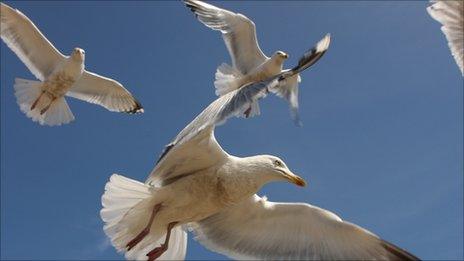Seagull cull proposal 'would be illegal', Worcester Council told
- Published
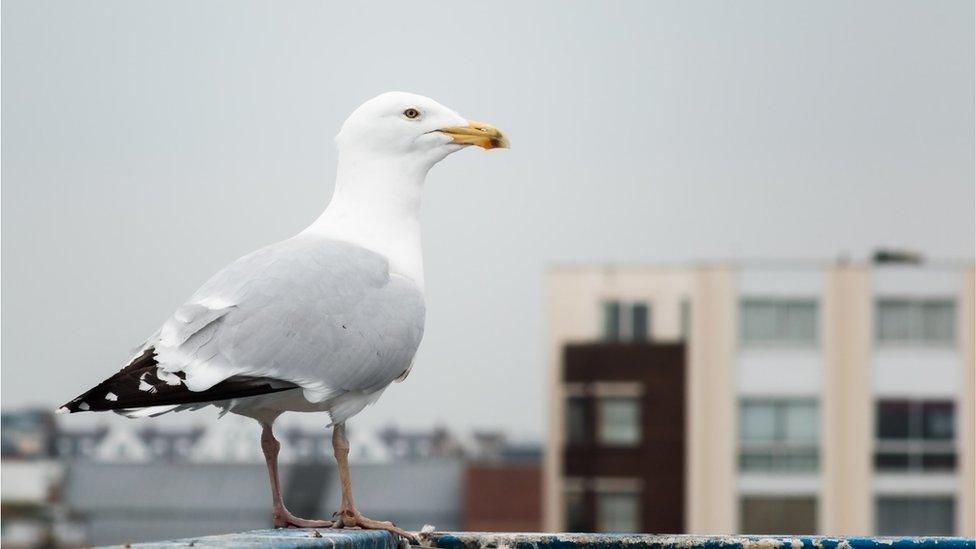
Worcester City Council ruled out a cull to reduce gulls in the city
A local authority which has spent years tackling a significant seagull population will not proceed with a cull after it was told it would be illegal.
Worcester City Council's environment committee met on Tuesday night to discuss options to control gull stock.
Chair Joy Squires said a cull was "a complete non-starter" and instead the council will invest £30,000 exploring other options, including lasers.
It will also continue "gull-proofing" bins to restrict their food supply.
Drones target Worcester seagull scourge in nest egg swap
Ms Squires said the council had received legal advice that it was "not possible" to apply for a licence from Natural England to cull the birds, which are protected under the Wildlife and Countryside Act.
Worcester is home to "a significant population" of gulls, the council said, which create particular problems around noise, attacks and mess.
The authority has tried a number of methods to target gulls, but none have "significantly reduced the gull population or resolved the issues", an environment committee report said, external.
These have included replacing eggs, erecting bunting to prevent swooping gulls, painting roofs red to deter nesting and removing open-topped bins from the city centre.
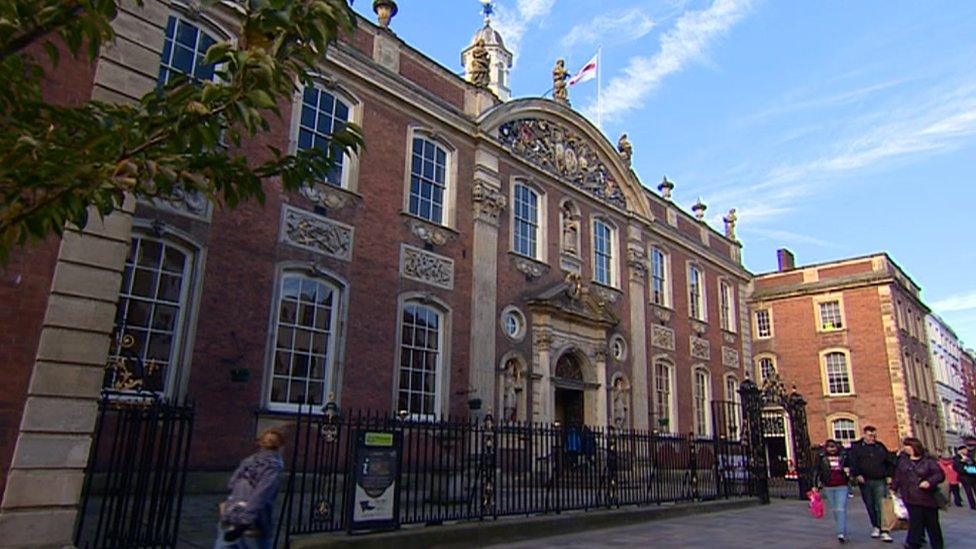
The local authority will spend £30K on other population controls
The council has also applied for a PSPO to stop people feeding the gulls.
Instead of a cull, Ms Squires said work will continue to make bins inaccessible to gulls and removing nests and eggs.
The council report also raised considerations such as lasers to scare off the birds and using hawks.
"We stand a very good chance of keeping things under control," Ms Squires said.

Follow BBC West Midlands on Facebook, external, on Twitter, external, and sign up for local news updates direct to your phone, external.
- Published24 July 2019
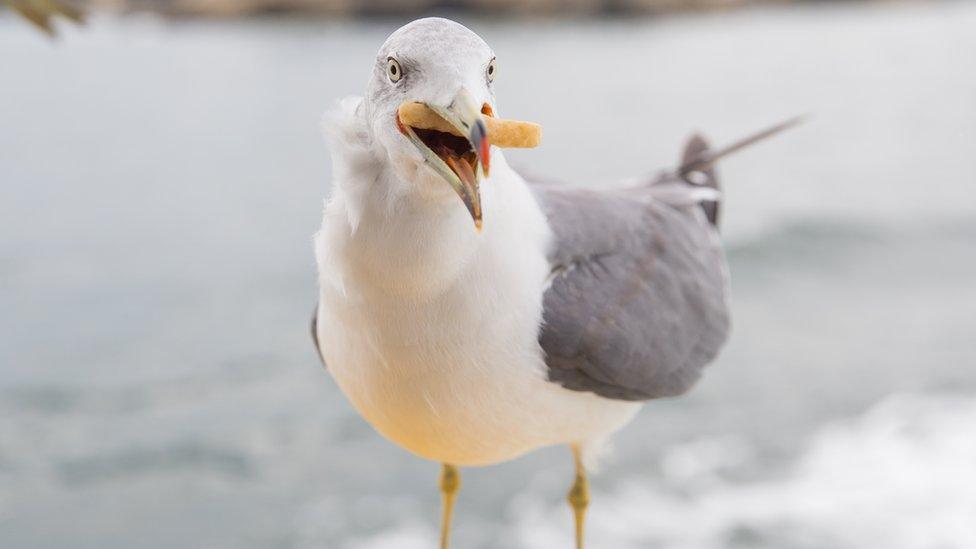
- Published27 June 2018
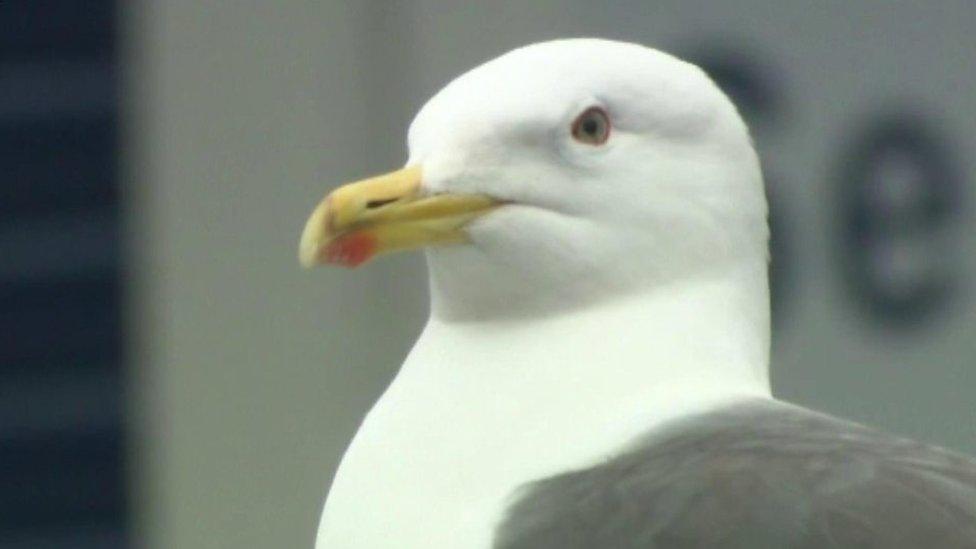
- Published21 April 2011
